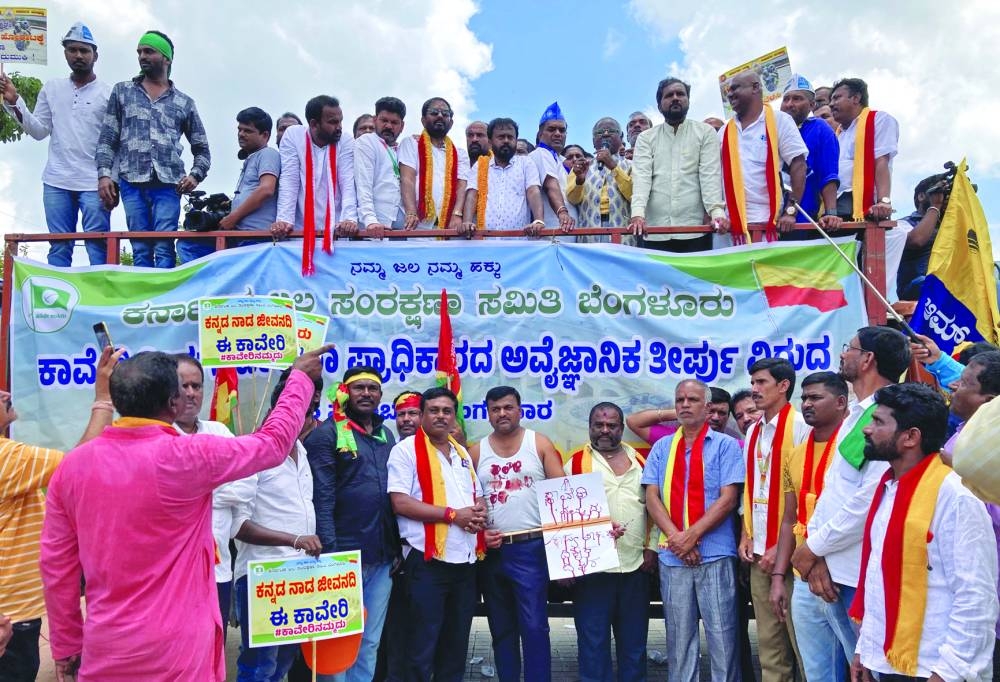Indian activist Partha Chaudhury is on a war footing as he strides out of the ruling BJP’s regional headquarters in Kolkata armed with passion and pages of voter lists.
“We need to meet each and every BJP supporter, and all of this has to be done in less than 300 days,” the 39-year-old tells a group of fellow activists advancing into the north of Kolkata, the teeming riverfront capital of West Bengal that’s home to about 15mn people.
“We want people to remember that the BJP knocked on their doors much before any opposition party worker did.” Chaudhury and his team are among an army of 18,000 volunteer activists fanning out across India ahead of next year’s national election. Their mission is to meet – face-to-face – with about 35mn BJP supporters by January.
The Bharatiya Janata Party, the world’s largest political outfit with 180mn members, is betting on what it says is the biggest voter outreach campaign in history, to secure a third term in power in the world’s most populous country.
Its leader, Prime Minister Narendra Modi, remains enduringly popular among Indians after almost a decade having brought political stability, invested in infrastructure, and championed welfare reforms and national security.
Despite voter concerns about inflation, unemployment and uneven growth, opinion polls suggest the right-wing BJP will comfortably win a third term in the federal elections, expected to be held in April and May.
It’s no sure thing, though: growing anti-incumbency sentiment is conspiring with a newly formed national alliance of 26 opposition parties, including archrival Congress, to pose what BJP officials say will be Modi’s toughest test by far.
“For once we are now seeing a united opposition,” said Tamoghna Ghosh, a senior BJP official campaigning in Kolkata. “They may be devoid of a shared political ideology or vision, but their determination to defeat Modi can’t be overlooked.”
While Modi and his party stress they govern for all Indians, their emphasis of their Hindu faith and culture has disquieted some members of minority groups who feel politically excluded, especially Muslims who make up about 14% of the 1.4bn population. Some critics warn of an erosion of India’s status as a secular democracy, long enshrined in its constitution. BJP leaders in New Delhi have been spurred to action by an internal report presented to them by researchers in February that concluded that an anti-incumbency vote could see the party lose about 34 of their 303 lawmakers in the lower house of parliament, robbing it of the majority that gives it a freer hand to pass laws, three senior party officials said.
“This time we will have to win in uncharted territories as retaining all the existing seats for the third time in a row is going to be a challenge,” said BJP national president J P Nadda, who is leading the grassroots mobilisation drive.
Nadda and six other senior BJP figures outlined previously unreported details of the project – dubbed the “Big Outreach” internally – which they said marked a shift from its 2014 and 2019 election strategies focused more on large campaign rallies across the country.
It won’t be an easy task, or free of risk, according to Nalin Mehta, dean at the UPES School of Modern Media in Uttarakhand and author of the book The New BJP.
He said the ground mobilisation, accompanied by an online campaign blitz, could fuel anti-incumbency sentiment in some quarters.
“The BJP’s challenge as the dominant national party is to manage voter fatigue and to sustain the enthusiasm among its cadres after two terms in power,” Mehta added.
“The party’s ground-level cadre-building goes hand in hand with the creation of a massive digital footprint ... as well as an industrial scale use of social media.”
The BJP’s outreach began over the summer, much earlier than in its previous campaigns when mobilisation started about four months before national elections.
The campaign isn’t focusing on wooing voters from rival parties, according to the party officials, but will instead make direct contact with people who voted BJP in 2019 to lock down their support, enlist their campaigning assistance and provide intelligence on local issues.

Demonstrators hold placards next to a banner as they attend a protest against the sharing of Cauvery river water with neighbouring Tamil Nadu state, in Bengaluru, India, yesterday. The banner and placards read: “Protest against the unscientific decision taken by authorities on Kaveri”, “Kannada land’s life-giving river, this Kaveri” and “Kaveri is ours”.
